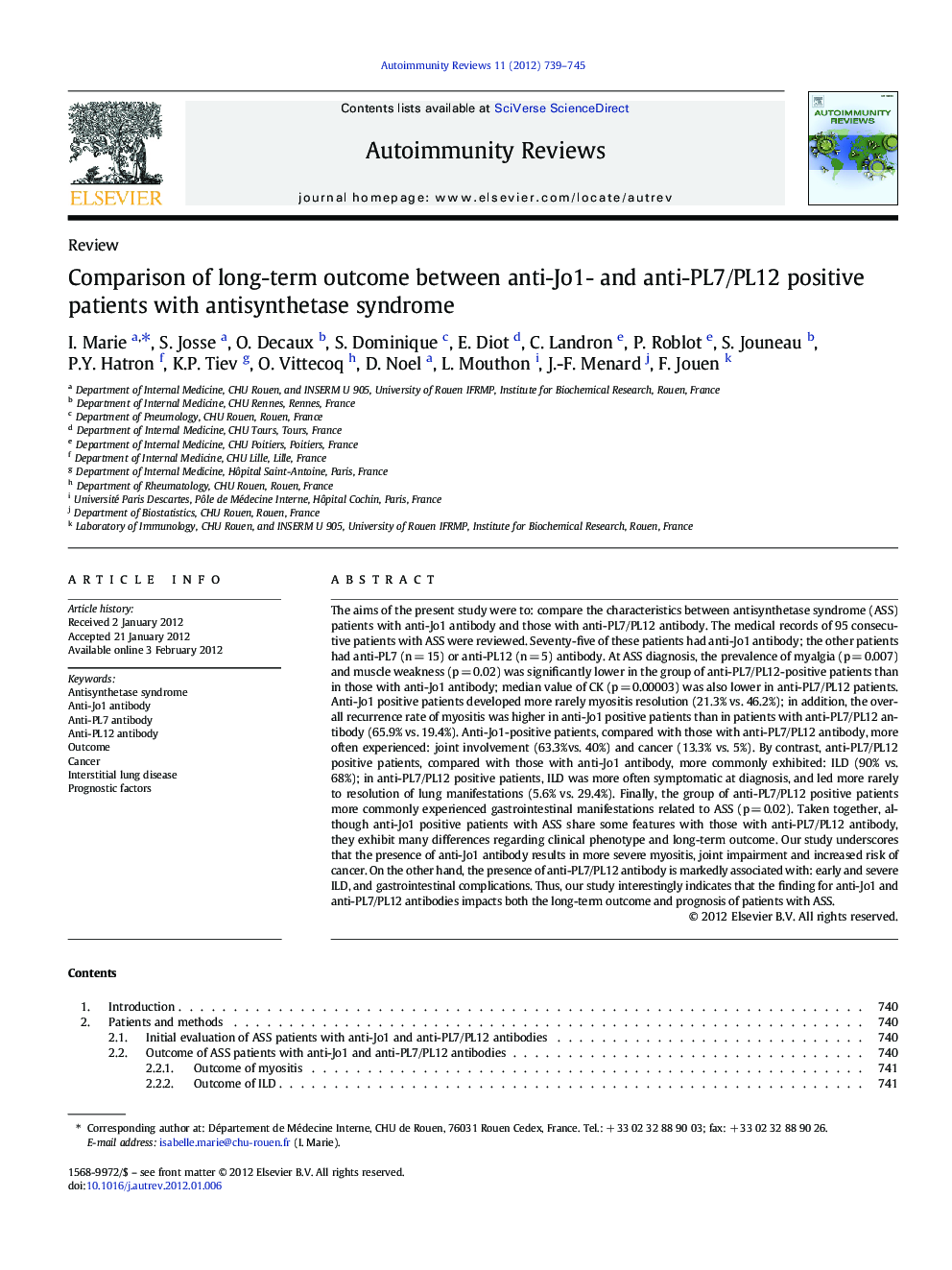| Article ID | Journal | Published Year | Pages | File Type |
|---|---|---|---|---|
| 6114546 | Autoimmunity Reviews | 2012 | 7 Pages |
Abstract
The aims of the present study were to: compare the characteristics between antisynthetase syndrome (ASS) patients with anti-Jo1 antibody and those with anti-PL7/PL12 antibody. The medical records of 95 consecutive patients with ASS were reviewed. Seventy-five of these patients had anti-Jo1 antibody; the other patients had anti-PL7 (n = 15) or anti-PL12 (n = 5) antibody. At ASS diagnosis, the prevalence of myalgia (p = 0.007) and muscle weakness (p = 0.02) was significantly lower in the group of anti-PL7/PL12-positive patients than in those with anti-Jo1 antibody; median value of CK (p = 0.00003) was also lower in anti-PL7/PL12 patients. Anti-Jo1 positive patients developed more rarely myositis resolution (21.3% vs. 46.2%); in addition, the overall recurrence rate of myositis was higher in anti-Jo1 positive patients than in patients with anti-PL7/PL12 antibody (65.9% vs. 19.4%). Anti-Jo1-positive patients, compared with those with anti-PL7/PL12 antibody, more often experienced: joint involvement (63.3%vs. 40%) and cancer (13.3% vs. 5%). By contrast, anti-PL7/PL12 positive patients, compared with those with anti-Jo1 antibody, more commonly exhibited: ILD (90% vs. 68%); in anti-PL7/PL12 positive patients, ILD was more often symptomatic at diagnosis, and led more rarely to resolution of lung manifestations (5.6% vs. 29.4%). Finally, the group of anti-PL7/PL12 positive patients more commonly experienced gastrointestinal manifestations related to ASS (p = 0.02). Taken together, although anti-Jo1 positive patients with ASS share some features with those with anti-PL7/PL12 antibody, they exhibit many differences regarding clinical phenotype and long-term outcome. Our study underscores that the presence of anti-Jo1 antibody results in more severe myositis, joint impairment and increased risk of cancer. On the other hand, the presence of anti-PL7/PL12 antibody is markedly associated with: early and severe ILD, and gastrointestinal complications. Thus, our study interestingly indicates that the finding for anti-Jo1 and anti-PL7/PL12 antibodies impacts both the long-term outcome and prognosis of patients with ASS.
Related Topics
Life Sciences
Immunology and Microbiology
Immunology
Authors
I. Marie, S. Josse, O. Decaux, S. Dominique, E. Diot, C. Landron, P. Roblot, S. Jouneau, P.Y. Hatron, K.P. Tiev, O. Vittecoq, D. Noel, L. Mouthon, J.-F. Menard, F. Jouen,
